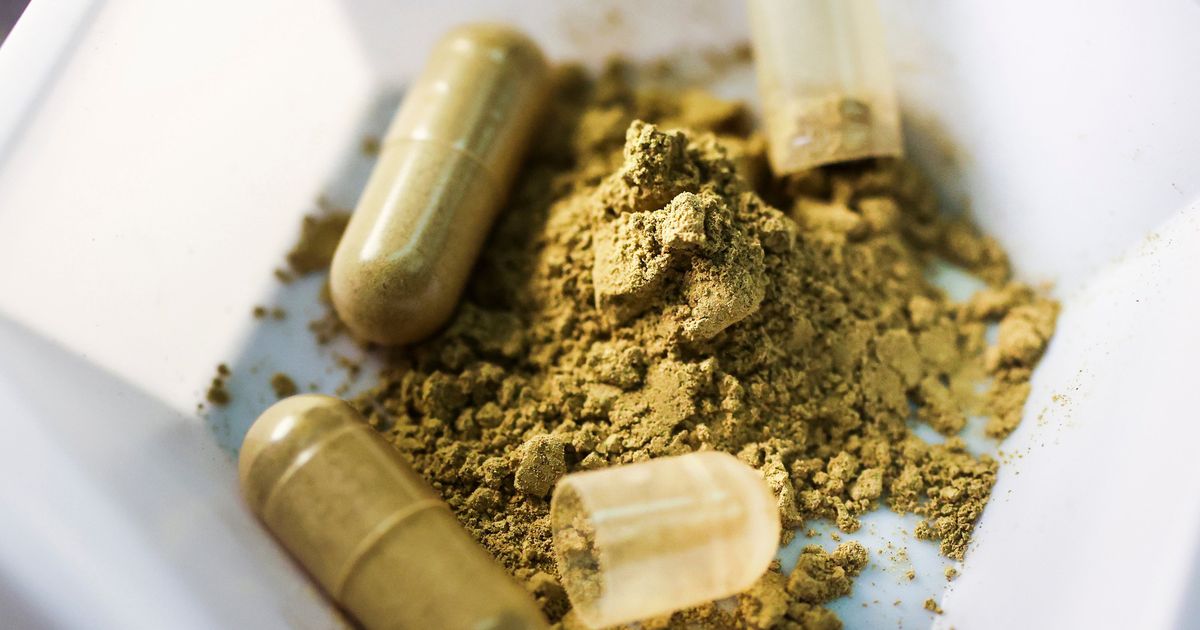
In effort to slow the opioid crisis, federal regulators plan to restrict a kratom compound available in smoke shops over the counter in Spokane and across the country.
The Food and Drug Administration announced Tuesday their intention to designate 7-hydroxymitragynine as a controlled substance. The move would prevent the drug from being sold over the counter and could ban it entirely.
“All our families are touched by addiction. Every American family. The financial cost of our country is in the trillions. And what we’re determined to do is to avert a fourth wave of addiction,” said Secretary of Health and Human Services Robert F. Kennedy Jr.
7-OH is the prime psychoactive component of the plant kratom, a tropical tree found in southeast Asia. Leaves of the plant have traditionally been used for pain relief in herbal tea. In recent decades, the plant has been sold in the United States as an over-the-counter herbal medicine found in convenience stores and smoke shops.
The controlled substance designation would not impact sales of the plant itself but of products that use a concentrated, synthetic version of its psychoactive components.
After the FDA’s recommendation, the Drug Enforcement Administration will make a final decision on whether to schedule 7-OH. Under the system, chemical substances are placed into one of five schedules based upon their medical use, potential for abuse and safety.
The FDA argues these products are an opioid equivalent of morphine, and its continued availability to the general public will worsen the opioid epidemic.
“We have a history in public health of being asleep at the wheel,” said FDA Commissioner Marty Makary. “For the sake of our nation’s children, let’s not get caught flat-footed again. Public health is supposed to prevent disasters, not just clean them up after they killed thousands and thousands of people.”
Sara Welty, nurse care manager for the medications for opiate use disorder program at Multicare Deaconess Hospital, appreciates the renewed effort to regulate 7-OH. But she notes the drug and its use is distinct from the ongoing opioid epidemic.
“I understand where the concern is coming from with the federal government, but I don’t know that we have enough information to make that distinct link between it and opiate abuse yet,” she said.
Kratom or 7-OH use is rare among Welty’s patients with opioid use disorder.
“This drug is not marketed towards those already struggling with an opioid addiction. It is too expensive,” she said. “The majority of patients we see would manage withdrawal symptoms with other drugs for less money.”
A small bottle of the drug can cost more than $30, she said. Street drugs are much cheaper. The target for 7-OH is largely college-age young people who use it for “increased energy and focus.”
“College kids have these busy, active lives and they’re being told that this drug is safe to use. But it turns out, it might not be as safe as people are claiming,” Welty said.
In June, the FDA issued warning letters to seven companies distributing products containing 7-OH that might appeal to children, including tablets, gummies, drink mixes and shots.
Welty said it is not known how much the drug is being used or sold in Spokane, largely because it unregulated.
The drug is available in many stores in the city. Spokane Regional Health District spokesperson Kelli Hawkins said use of 7-OH is an “emerging trend” they are “watching closely.”
“Most concerning – given the FDA findings that 7-OH’s clinical presentations include euphoria, sedation, respiratory depression, and opioid-like withdrawal symptoms, with users acknowledging its significant addiction potential – is its non-regulated accessibility, especially for youth,” Hawkins said in a statement. “There is also concern that its widespread availability can lead people to believe that it is safe when in fact the FDA has found that 7-OH has opioid-like properties.”
Kratom Shop in Spokane primarily sells the plant but also carries 7-OH products. They are “not the most popular products” in the store, said the store owner, who declined to give his name.
According to the Kratom Shop owner, the governments effort to restrict 7-OH is just an effort to maintain the pharmaceutical industry’s monopoly on pain relief.
Many states have enacted some regulations on kratom and 7-OH, but Washington state has not approved restrictions. The federal government previously announced kratom would be regulated as a controlled substance in 2016 but later reversed that plan under President Donald Trump’s first term.
In 2017 then-FDA Commissioner Scott Gottlieb said that kratom use was likely unsafe.
“Kratom should not be used to treat medical conditions, nor should it be used as an alternative to prescription opioids,” Gottlieb said at the time. “There is no evidence to indicate that kratom is safe or effective for any medical use.”
Welty said kratom has not been sufficiently studied, but the plant leaves are “not particularly harmful.”
Current FDA Commissioner Makary said Tuesday the agency had no intention of regulating kratom itself.
“We have to prioritize what we work on. So we are going after the killer first, which is the synthetic, concentrated 7-OH,” he said.

